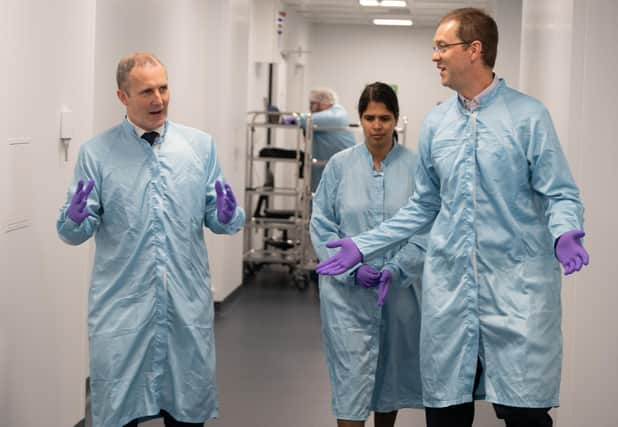How CGT Catapult's new life sciences network will foster collaboration


As Scotland’s life sciences sector moves towards reaching an impressive turnover of £8 billion by 2025, the industry is set to benefit from Cell and Gene Therapy Catapult’s (CGT Catapult)upcoming network, aimed at fostering collaboration in the field, while boosting the sharing of knowledge and expertise.
The Scottish Advanced Therapy Medicinal Products (ATMP) and Vaccines Network, supported by Scottish Enterprise and CGT Catapult, will create a forum for the exchange of information, co-ordinate events, talks from industry leaders, and networking opportunities for the advanced therapies industry.
Through the network, which was announced last month, CGT Catapult will create an invaluable source of information for the sector, helping organisations to understand each other’s capabilities, and encourage partnerships between academia and industry.


“We want to build a collaborative network across the whole of Scotland’s life sciences group, with a focus on advanced therapies and vaccines, so that we can facilitate knowledge exchange, and transfer capabilities and training initiatives,” explains Dr Jacqueline Barry, CGT Catapult’s Chief Clinical Officer.
As part of the collaboration, there will also be a directory of Scotland-based life sciences companies and their capabilities. “We find that often people don’t fully understand what the companies can do. We hope this network will help overcome this knowledge gap, as if they can understand the capabilities that different companies offer, it can accelerate development –especially for academics who are looking to translate their research into potential new therapies,” says Barry.
“If you have an academic in front of one of these industry leaders for half an hour, their development plans can be cut by about nine months because they understand what is required, and they have found someone who can provide the services and expertise they need.”
The network will host at least two large-scale events annually to bring the industry together for discussions on key issues.
The first one, Barry says, will likely focus on the need to develop skills north of the Border. “In Scotland, we have more than 40,000 people employed in life sciences and there is a potential growth of the capability. This continued growth requires enough people with the right skills,” she maintains.
“This covers everything from clean room technicians to manufacturing managers, and there is a real girth of regulatory and quality people, through to clinical staff.”
CGT Catapult, an independent innovation and technology organisation, was established in 2012 to advance the growth of cell and gene therapies in the UK, and this latest news follows the official opening of its first site in Scotland at the Edinburgh BioQuarter in June.
Situated in the University of Edinburgh’s Institute of Regeneration and Repair, the space is helping CGT Catapult to provide expertise, resources and technology to support advanced therapy developers.
Addressing the urgent need to prioritise skills provision, CGT Catapult has established apprenticeships, training programmes, tools and content to guide, upskill and cross-skill people throughout the UK.
Through the Advanced Therapy Apprenticeship Community, co-ordinated by CGT Catapult, more than 300 apprentices have now been enrolled in courses across the UK and, from March next year, a new apprenticeship programme will be offered in partnership with Forth Valley College, which has campuses in Falkirk and Stirling.
On why her organisation is now firmly focusing on the country, Barry says: “The life sciences community here in Scotland is amazing. We have five ATMP manufacturers and 700 other life science companies.
“The real strength in Scotland is the triple helix interaction between academia, industry and the NHS. In addition, there are a large number of innovative companies and the ability for NHS Scotland – through their fast-track Accelerated National Innovation Adoption scheme – to accelerate the adoption of innovations into use in the NHS in Scotland, which will hopefully supply therapies to patents.”
She points to CGT Catapult’s Clinical Trial Database 2022, noting that while the UK has seen an overall decrease in the traditional form of clinical trials, for advanced therapies clinical trials, the database reveals a year-on-year increase, with the figure almost tripled in 2022, compared to 2017.
Barry adds: “We want to encourage the Scottish and UK governments to look at Scotland and its strengths – in particular in advanced therapies – and provide support to continue to grow the region as a life sciences hub.
“The collaboration between the NHS in Scotland and industry could improve the health and the wealth of the nation if we look at it in a joined-up way, acting to reduce costs and health inequalities.”
To find out more, go online to ct.catapult.org.uk